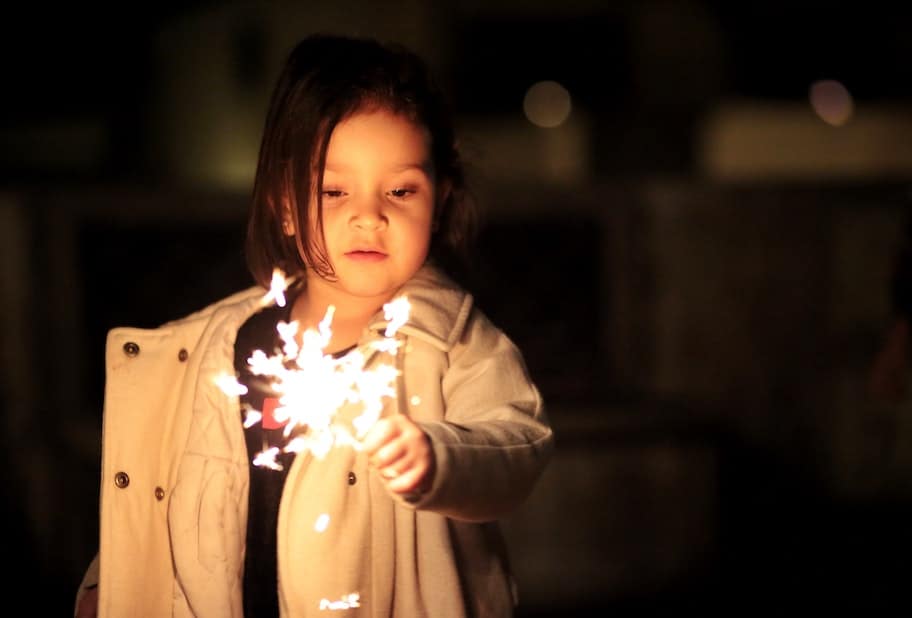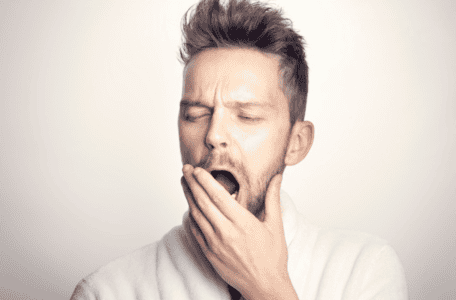With New Year’s Eve just around the corner, winter can be an exciting time with lots of explosive events and colourful displays. But if you have a family with young children, the lights, colours, flashes and loud noises can be a bit overwhelming. As well as keeping them safe at a bonfire or fireworks display, you may need to consider some extra precautions to keep children safe and well.
But why are fireworks so loud? This is due to a chemical reaction that occurs once a fuse is lit. The burning gunpowder then releases a hot gas that expands rapidly and when it runs out of space, the resulting explosion causes a blast wave. The vibrations from a blast wave can potentially damage the sensitive hair cells of the inner ear, which help us hear.
According to the World Health Organisation, the maximum safe firework volume level for adults is 140 decibels and for children only 120 decibels (fireworks can often range in sound between a shotgun blast and a jet engine taking off).
If you’re attending a fireworks display this New Year’s Eve, here are a few tips:
Never expose babies to fireworks
Infants should not be exposed to loud noises at all because their ear canal is much smaller than an adult’s – what might not sound very loud to an adult can sound up to 20 decibels louder to an infant
Protect your children’s ears
Loud noises can impact your child’s health and in some cases, cause hearing loss. Many firework displays can be as loud as 140 decibels – and sounds of 80dB can affect the hearing development in small children. For babies and toddlers, ear muffs can help reduce noise levels. (Ear plugs are not advisable as they are too small and are also a potential choking hazard)
Attend a public display
Experts recommend attending a local community display rather than setting off your own fireworks at home. That way, the explosions can be professionally managed and there is likely to be more space for you to watch from a safe distance. If you opt to buy your own fireworks, you can select them according to noise level ratings – good for your neighbours and also your hearing! Quieter options include fountains, wheels, falling leaves and comets. It’s best to avoid the louder fireworks such as rockets, mines and those which have blasts strung together.
Keep children warm
November can be a chilly month and if you’re going to a fireworks or bonfire event, you’re likely to be standing outside for long periods of time. Be sure to keep your children warm with plenty of suitable clothing such as hats, scarves and gloves
Keep a safe distance
While a big bonfire or firepit may feel warm and look fascinating, always keep children at a safe distance. Not only could a spark from a fire burn them, smoke from the burning materials could be dangerous and potentially damage your child’s lungs. Also, the further you are from the source of the loud noise, the less harmful it will be to your ears (a distance of around 500 feet will give you a good view without the sound pressure that can damage the inner ear)
Limit Your Exposure
If you’re attending a fireworks event, you may prefer to take a short break by going indoors or by leaving a bit earlier to limit you and your children’s exposure to harmful loud noises (and cold weather!)
Remember that just because you may not personally be affected by loud noises yourself, you baby might be. Babies hear differently to adults and loud sounds have the potential to damage their hearing and restrict their future development. Lynne Werner, Professor of Speech and Hearing Science at the University of Washington says: “Babies have a different way of listening to the world. In real life, we are confronted with a variety of sounds. Somehow the adult brain takes all sounds we hear and separates them into where they are coming from, then focuses on the one we want to hear. Adults usually hear in a narrow band of sound, while babies seem to use a different approach. They don’t have the selective attention of adults, and they don’t pay attention all of the time. Instead they always seem to be listening broadband or to all frequencies simultaneously.”
Hearing plays a huge role in the development of a child’s cognitive, social, and emotional behaviour. Hearing loss can cause delays in speech and language processing and also their ability to understand and communicate. It’s essential that any hearing loss is detected as soon as possible to minimise negative effects, which may stretch into adulthood.
Noise-induced hearing loss is one of the biggest ways in which people can lose their hearing. Exposure to noises such as loud fireworks can cause tinnitus, temporary hearing loss, eardrum perforation and with repeated exposure, permanent hearing loss – especially later in life.
If you think you have temporary hearing loss after attending a fireworks display, get in touch with us for a hearing assessment – call 01223 661 399 or book online.
For advice on detecting and treating hearing loss in children visit our Paediatric Hearing Care page.




